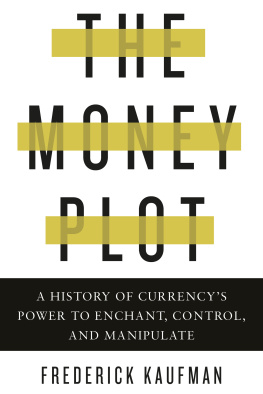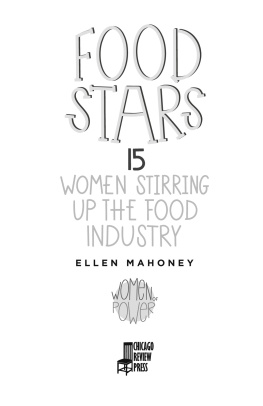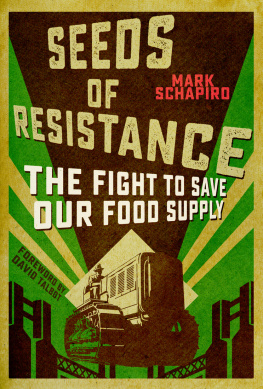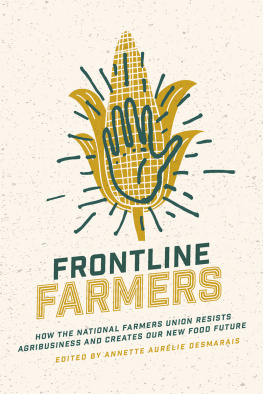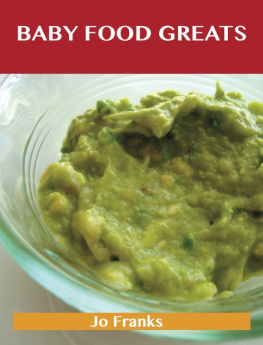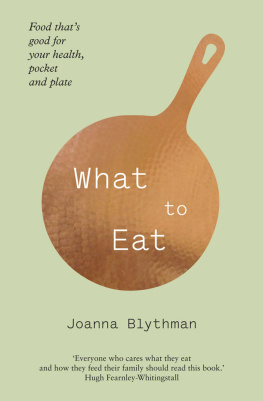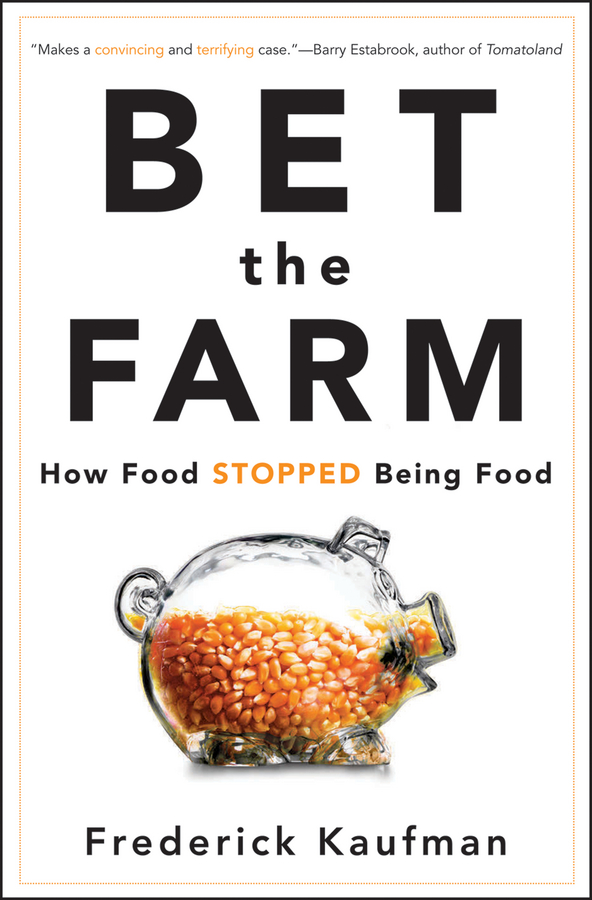Contents

Copyright 2012 by Frederick Kaufman. All rights reserved
Cover design: Wendy Mount
Cover image: Kernels in piggy bank Roy Hsu/Getty Images; piggy bank against white background skodonnell/iStockphoto
Published by John Wiley & Sons, Inc., Hoboken, New Jersey
Published simultaneously in Canada
No part of this publication may be reproduced, stored in a retrieval system, or transmitted in any form or by any means, electronic, mechanical, photocopying, recording, scanning, or otherwise, except as permitted under Section 107 or 108 of the 1976 United States Copyright Act, without either the prior written permission of the Publisher, or authorization through payment of the appropriate per-copy fee to the Copyright Clearance Center, 222 Rosewood Drive, Danvers, MA 01923, (978) 750-8400, fax (978) 646-8600, or on the web at www.copyright.com . Requests to the Publisher for permission should be addressed to the Permissions Department, John Wiley & Sons, Inc., 111 River Street, Hoboken, NJ 07030, (201) 748-6011, fax (201) 748-6008, or online at http://www.wiley.com/go/permissions .
Limit of Liability/Disclaimer of Warranty: While the publisher and the author have used their best efforts in preparing this book, they make no representations or warranties with respect to the accuracy or completeness of the contents of this book and specifically disclaim any implied warranties of merchantability or fitness for a particular purpose. No warranty may be created or extended by sales representatives or written sales materials. The advice and strategies contained herein may not be suitable for your situation. You should consult with a professional where appropriate. Neither the publisher nor the author shall be liable for any loss of profit or any other commercial damages, including but not limited to special, incidental, consequential, or other damages.
For general information about our other products and services, please contact our Customer Care Department within the United States at (800) 762-2974, outside the United States at (317) 572-3993 or fax (317) 572-4002.
Wiley also publishes its books in a variety of electronic formats and by print-on-demand. Some content that appears in standard print versions of this book may not be available in other formats. For more information about Wiley products, visit us at www.wiley.com .
Library of Congress Cataloging-in-Publication Data :
Kaufman, Frederick, date.
Bet the farm : how food stopped being food / Frederick Kaufman.
p. cm.
Includes bibliographical references and index.
ISBN 978-0-470-63192-8 (cloth); ISBN 978-1-118-25904-7 (ebk);
ISBN 978-1-118-22080-1 (ebk); ISBN 978-1-118-23459-4 (ebk)
1. Food industry and tradeSocial aspects. 2. Food supplySocial aspects. 3. AgricultureEconomic aspects. I. Title.
HD9000.5.K3725 2012
338.1dc23
2012013720
For Luke Mitchell and for Lizzie
Introduction
Closed to the Press
Winter in the Swiss Alps, and the helicopters settle on landing pads patrolled by troops. Out the doors walk presidents, prime ministers, and the CEOs of companies like Google, ExxonMobil, and Bank of America. More than two thousand international leaders and luminaries have come to the World Economic Forums annual meeting in Davos, Switzerland, where they will weigh the prospects of the planet and everyone on itand not necessarily tell us their conclusions.
Journalists trail the global chieftains, but Davos is not the easiest spot for them to ply their trade. Most of the lectures and debates are closed to the press, and all are held under the Chatham House Rule of confidentiality: Participants are free to use the information received, but neither the identity nor the affiliation of the speaker, nor that of any other participant, may be revealed.
In January 2012, Professor Yaneer Bar-Yam, president of the New England Complex Systems Institute in Cambridge, Massachusetts, came here to speak. The topic of his presentation was not typical for the World Economic Forumnot global capital and risk, not the future of democracy and development. But the seminar room was packed. Yaneer Bar-Yam was going to talk about food.
Everyone who lives eats, so the moguls and the magnates scrutinized the models and graphs Bar-Yam projected on the screen. They sat in silence as the professor proved what everyone in the room already knew. Something had gone wrong with food, and the problem went beyond E. coli or high-fat, high-sugar diets. The problem went beyond artificial ingredients, pesticides, and fast-food restaurants.
The trouble with food, explained Bar-Yam, had first become apparent four years earlier, in 2008. That year, farmers produced more grain than ever, enough to feed twice as many people as were on Earth. In the same year, for the first time in history, a billion people went hungry. The paradox bordered on the pathological.
What had gone wrong with food? The Davos participants believed they understood the issues, and in this regard we have a lot in common with them. Modern food consciousness has been rooted in the writings of Wendell Berry, Frances Moore Lapp, Marion Nestle, Raj Patel, Michael Pollan, and Eric Schlosser, to name but a few. The activist agenda has been set: slow versus fast, small versus big, nutritional versus chemical, organic versus conventional, diversity versus monoculture, sustainable versus wasteful, farm-to-fork versus transnational, and local versus food from nowhere.
But along with our consciousness of the food problem have come a number of assumptions. Some of these have to do with how the problem came to be, others have to do with how the problem affects us, and still others have to do with the solution and how to fight back. Most of that fighting back currently takes place at the cash register as we buy food outside the agro-industrial supply chain and try to eat local and organic food, mostly vegetables. As a general rule, we believe that what ails the system must be either corporate greed or people not knowing any better, so we look to the education system to teach children how to eat and to government regulations to alter the behavior of those who sell us food.
But just as we returned to an appreciation of real food, just as we came to value family farms and local produce, it was as though food had slipped out of our grasp. In 2008, the price of the worlds most basic foods doubled, then doubled again, and people like Bar-Yam began to suspect that the problem went further than what we had assumed. The problem went to the core of the global system, and the system was broken.
If you eat the most delicious local, grass-fed filet mignon, grilled with a side of seasonable vegetables and organic herbs, all from your neighborhood green market, that meal has come to you because there was money in it. If your daughter eats a school lunch of low-quality factory-farmed chicken nuggets and a suspicious-looking, peel-open cup of heavily sugared applesauce, all for just $1.50, that meal has come to her because there was money in it.
Food and money go way back, but something had transformed the basic transaction of selling a farm good for more than it cost to plant and harvest. Something had changed the way food is bought and sold. The CEOs at Davos were talking about food because it had stopped acting like food. But how could something so basic turn into something it was not?
Food had been financialized, Bar-Yam explained to the packed room in Davos. Food had become an investment, equivalent to oil, gold, silver, or any other commodity, equity, or derivative. The higher the price, the better the investment. The better the investment, the more costly the food. And those who cannot pay the price pay with hunger.


